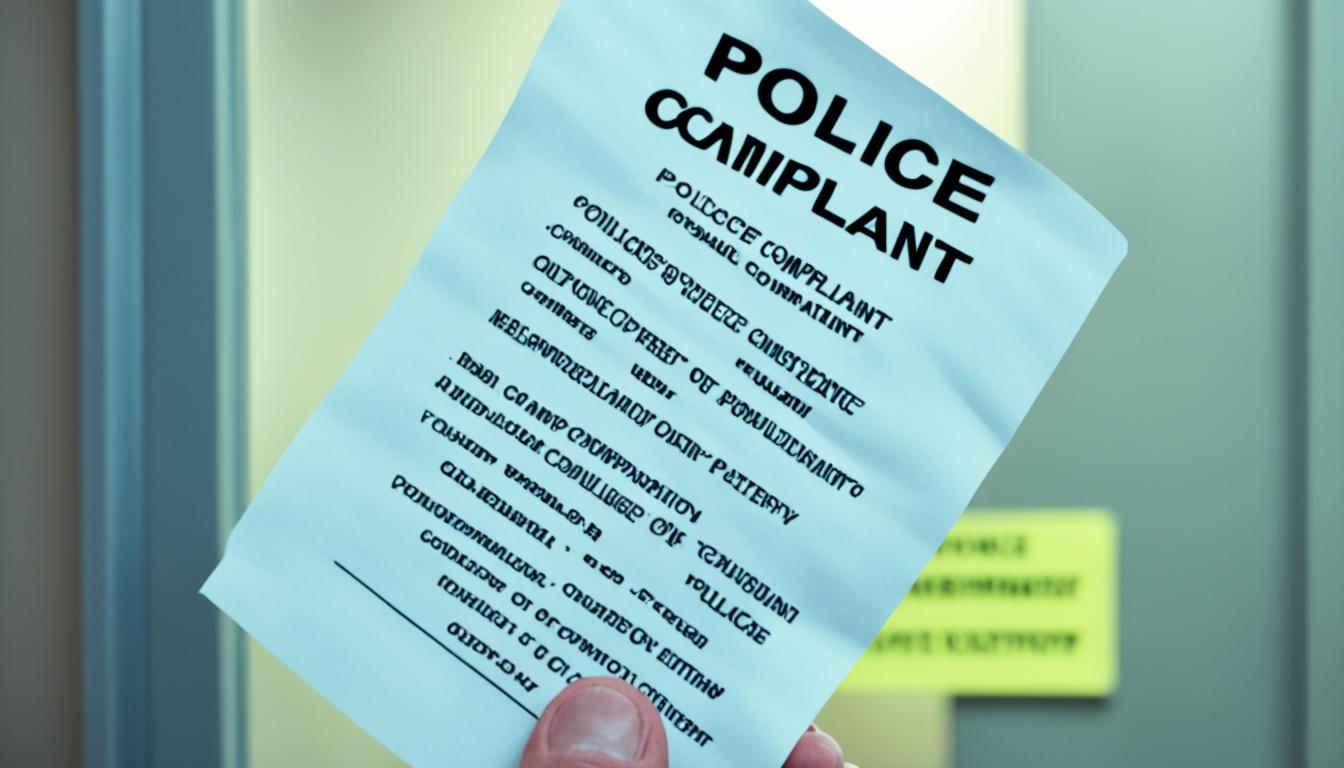Dealing with individuals who owe you money can be a daunting task. This article aims to provide a comprehensive guide on how to file a police complaint against someone who owes you money in the United Arab Emirates (UAE). It will focus on the legal recourse available to creditors, particularly the option of lodging a civil complaint at the Centre for Amicable Settlement of Disputes at Dubai Court.
Dive into the article that covers information about police complaint for not returning money in UAE .
This option is particularly beneficial for cases involving amounts less than Dh50,000. Lending money to someone, whether it’s a friend, family member, or business associate, can sometimes lead to disputes if the borrower fails to repay the debt. In the United Arab Emirates, creditors have legal avenues to recover their money and seek justice.
This article outlines the process of filing a complaint against someone who owes you money in the UAE, primarily focusing on the option of initiating a civil complaint through the Centre for Amicable Settlement of Disputes at Dubai Court for debts or claims amounting to less than Dh50,000.
Understanding the Legal Landscape of Debt Recovery in the UAE
The term “debt” often carries negative connotations, but in reality, debt is simply a financial obligation incurred by individuals or organizations in exchange for goods, services, loans, or other liabilities with monetary value. It only becomes problematic when it is not paid as per the original agreement. When you are owed money by someone in Dubai, the first step is typically to attempt an out-of-court resolution.
Defining Debt and Its Implications
Debt, in the context of the legal landscape of debt recovery in the UAE, refers to the financial obligations that arise when an individual or organization borrows money or acquires goods or services with the promise of repayment. The implications of debt can be far-reaching, as the failure to fulfill these obligations can result in legal disputes, financial penalties, and damage to credit scores.
The Absence of Specialized Debt Recovery Courts
Recovering outstanding debts in the UAE can be challenging due to the lack of specialized debt recovery courts. In Dubai, cases often end up before the Federal Supreme Court or the Court of Cessation, both of which handle a wide range of civil and commercial disputes. As a result, creditors may need to explore alternative dispute resolution methods, such as mediation and negotiation, to recover their funds.
Exploring Alternative Dispute Resolution Methods
Given the absence of specialized debt recovery courts in the UAE, creditors are often required to explore alternative dispute resolution methods to recover their outstanding debts. These methods may include mediation, where a neutral third party helps facilitate a settlement between the creditor and the debtor, or negotiation, where the parties directly engage in discussions to find a mutually agreeable solution.

Gathering Evidence for Your Claim
Before proceeding with any legal action, it is essential to gather substantial evidence to support your debt recovery claim in the UAE . This evidence will play a crucial role in proving the legitimacy of your case. Some key pieces of evidence to collect include:
Written Agreements and Documentation
Any written agreements or documents that outline the terms of the loan, including the amount, repayment schedule, and any interest rates. These written agreements and documentation will serve as crucial evidence in your debt recovery claim.
Communication Records and Correspondence
Messages, emails, or other communication records and correspondence between you and the borrower that discuss the loan, repayment, or any promises made regarding the debt. These records can provide valuable insight into the nature of the financial arrangement.
Financial Transactions and Bank Statements
Bank statements or financial transaction records that can substantiate the transfer of funds from you to the borrower. These documents can help demonstrate the legitimacy of the loan and the borrower’s obligation to repay the debt.
Witness Testimonies
If there were witnesses present during the loan agreement or any subsequent discussions, their witness testimonies can strengthen your debt recovery claim by corroborating the details of the financial arrangement.
By gathering this comprehensive evidence, you can establish a strong foundation for your debt recovery claim in the UAE and increase your chances of a successful resolution.

Filing a Civil Complaint at the Centre for Amicable Settlement of Disputes
If the amount owed to you is less than Dh50,000, one effective way to seek resolution is by filing a civil complaint at the Centre for Amicable Settlement of Disputes at Dubai Court. Your complaint should include all the details specified in Article 42 of Federal Law No. (11) of 1992 regarding Civil Procedures Law of the UAE. This includes your personal details, the borrower’s details, a clear description of the subject matter of the lawsuit, your requests, and the grounds for your claim.
Eligibility Criteria for the Centre
To be eligible to file a complaint at the Centre for Amicable Settlement of Disputes, the outstanding debt or claim must not exceed Dh50,000. This threshold ensures that the Centre can effectively mediate and facilitate the resolution of smaller-scale disputes.
Preparing and Submitting Your Complaint
Ensure that your complaint is clear, concise, and well-documented. Attach all relevant evidence to support your claim. Take your prepared complaint and evidence to the Centre for Amicable Settlement of Disputes at Dubai Court. Provide all necessary details and documents to the case management office.
The Mediation and Negotiation Process
After submitting your complaint, the legal process will commence. The Centre for Amicable Settlement of Disputes will review your case and attempt to facilitate a resolution through mediation or negotiation. This process aims to help both parties reach an amicable agreement without the need for formal court proceedings.
Enforcing a Settlement Agreement
If an amicable settlement is reached, a settlement agreement will be drafted and signed by both parties. If the borrower fails to comply with the settlement agreement, you can take legal action to enforce it. This ensures that the agreed-upon terms are upheld, and you can recover the outstanding debt.

Friendly Loans and Their Legal Implications
Friendly loans, although seemingly straightforward, require careful consideration to protect the interests of both the lender and the borrower. In Dubai, as in many other jurisdictions, friendly loans are typically informal arrangements made among friends, family, or known acquaintances. While these loans may lack the formality of legal documentation, they are not exempt from legal regulations.
Understanding the Nature of Friendly Loans
To comprehend the legal aspects of friendly loans in Dubai, it is essential to refer to the pertinent articles in Federal Law No. (5) of 1985 On the Civil Transactions Law. This law addresses critical aspects, including the lender’s right to reclaim their money and the subsequent steps available to them.
Legal Recourse for Friendly Loan Disputes
In cases where the borrower defaults on a friendly loan, the lender has legal options available. The lender must first notify the borrower of the refund within a minimum period of 15 days. Subsequently, they can prepare a memorandum detailing the specifics of the loan and proceed to a civil court to claim their rights.
Best Practices for Lenders and Borrowers
To safeguard their rights and interests, both lenders and borrowers should adhere to best practices, such as avoiding cash payments, documenting the agreement, and considering third-party witnesses.
Police Complaint for Not Returning Money in UAE
In certain cases where the borrower’s actions constitute a criminal offense, you may consider filing a police complaint. This is in accordance with Article 404 of the Federal Law No. 3 of 1987 on the issuance of the Penal Code in the UAE. It states: “Whoever embezzles, uses, or wastes funds, securities, or any other movable property with the intention to prejudice the interest of the due right’s owners, if it is delivered to him as a deposit, rent, pledge, loan for use, or proxy, shall be punished by detention or by a fine.” This provision applies to situations where the borrower has intentionally misappropriated the funds or property entrusted to them, with the intent to harm the rightful owner.
Distinguishing Between Civil and Criminal Offenses
This can be a viable option when other legal avenues have been exhausted, or when there is clear evidence of criminal intent. However, it is important to note that friendly loans are distinct from cases of theft or breach of trust. Therefore, police authorities cannot enforce actions for recovery in friendly loan cases.
Circumstances Warranting a Police Complaint
The police complaint for not returning money in the UAE can be considered when the borrower’s actions constitute a criminal offense, such as intentional misappropriation of the funds or property entrusted to them. This is in accordance with the Penal Code, which provides for punishment in the form of detention or a fine for those who embezzle, use, or waste funds or other movable property with the intention to harm the rightful owner.
Navigating the Legal Process for Criminal Cases
When filing a police complaint for not returning money in the UAE, it is important to understand the legal process and the distinction between civil and criminal offenses. While friendly loans are distinct from cases of theft or breach of trust, the police authorities can take action in situations where there is clear evidence of criminal intent and the exhaustion of other legal avenues.
Seeking Legal Assistance
Recovering outstanding debts in the UAE can be a complex and challenging process, and it may be beneficial to seek the assistance of a qualified legal professional.Lawyers can play a crucial role in debt recovery cases by providing guidance on the appropriate legal actions, drafting necessary documentation, and representing clients in court proceedings or negotiations.
The Role of a Lawyer in Debt Recovery Cases
Lawyers who specialize in debt recovery in the UAE can help clients navigate the legal landscape, ensuring that their rights are protected and that they have the best possible chance of successfully recovering their funds. They can provide valuable insights into the legal process, identify the most effective strategies for debt recovery, and handle all necessary paperwork and court proceedings on the client’s behalf.
Evaluating the Costs and Benefits
When evaluating the costs and benefits of hiring a lawyer for debt recovery in the UAE , it is important to consider factors such as the complexity of the case, the likelihood of a successful outcome, the potential financial risks and rewards, and the overall costs associated with legal representation.
While legal fees may be a consideration, the expertise and support provided by a skilled lawyer can often outweigh the costs, particularly in cases involving larger sums of money or complex legal issues.
Preventing Future Disputes
To prevent future disputes and facilitate the smooth recovery of debts, it is essential to take proactive measures. This includes drafting comprehensive loan agreements that clearly outline the terms and conditions of the financial arrangement, including the loan amount, repayment schedule, and any applicable interest rates or fees.
Drafting Comprehensive Loan Agreements
Comprehensive loan agreements serve as the foundation for a successful lending relationship. By drafting detailed contracts that address all aspects of the loan, including the rights and responsibilities of both the lender and borrower, you can minimize the potential for future disputes.
Maintaining Clear Communication and Documentation
Maintaining clear and consistent communication with the borrower, as well as thorough documentation of all transactions and correspondence, can also help to mitigate the risk of misunderstandings or disputes. This includes keeping detailed records of payments, repayment schedules, and any agreed-upon modifications to the original loan agreement.
Considering Alternative Lending Options
Additionally, considering alternative lending options, such as using escrow services or working with licensed financial institutions, may provide an added layer of protection and formality to the lending process, reducing the potential for future conflicts. These options can help to create a more structured and transparent lending environment, minimizing the risk of disputes.
Conclusion
In conclusion, navigating the legal landscape for debt recovery in the UAE can be a complex and challenging process, but with the right strategies and tools, creditors can effectively pursue the return of their funds. By gathering comprehensive evidence, utilizing the Centre for Amicable Settlement of Disputes, understanding the nuances of friendly loans, and, if necessary, considering criminal complaints, individuals can increase their chances of successfully recovering outstanding debts.
Additionally, seeking legal assistance and implementing preventative measures, such as drafting comprehensive loan agreements and maintaining clear communication, can help to minimize the risk of future disputes. By following the steps outlined in this article, creditors in the UAE can strengthen their position and pursue the rightful return of their money.
Ultimately, with a combination of diligence, legal knowledge, and proactive measures, creditors in the UAE can navigate the debt recovery process and regain control of their financial assets. By taking a strategic and informed approach, they can increase their chances of a favorable outcome and ensure that their rights are protected under the UAE’s legal framework.
FAQ
What legal recourse do creditors have in the UAE to recover outstanding debts?
In the UAE, creditors have legal avenues to recover their money, particularly the option of initiating a civil complaint at the Centre for Amicable Settlement of Disputes at Dubai Court for debts or claims amounting to less than Dh50,000.
What type of evidence is important to collect when filing a complaint against someone who owes you money in the UAE?
Key evidence to collect includes written agreements, documents outlining the loan terms, communication records, financial transactions, and witness testimonies to support your claim.
How can I file a civil complaint at the Centre for Amicable Settlement of Disputes in Dubai?
To file a civil complaint at the Centre, you need to prepare a complaint that includes your personal details, the borrower’s details, a clear description of the subject matter, your requests, and the grounds for your claim. Attach all relevant evidence and submit the complaint to the case management office.
What are the legal implications of friendly loans in the UAE, and what steps can lenders take if the borrower defaults?
Friendly loans in the UAE are governed by the Civil Transactions Law. If the borrower defaults, the lender must first notify the borrower within 15 days and then can prepare a memorandum to claim their rights in a civil court.
When can I file a police complaint for not returning money in the UAE, and what are the legal consequences?
You can file a police complaint if the borrower’s actions constitute a criminal offense, such as embezzlement or breach of trust, as per Article 404 of the UAE Penal Code. However, friendly loan cases are typically considered civil disputes, and police authorities cannot enforce actions for recovery in such cases.









